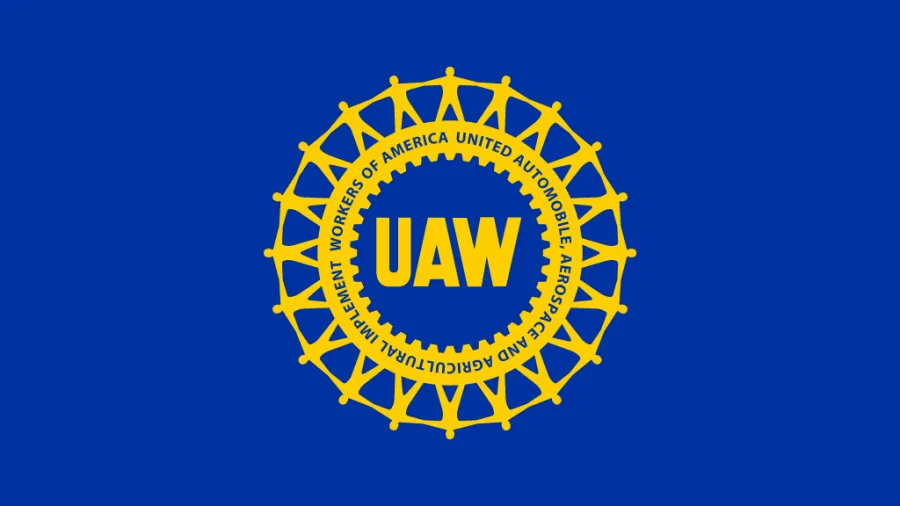UAW Mourns the Loss of President Emeritus Owen F. Bieber

The UAW International Executive Board is deeply saddened at the passing today of UAW beloved President Emeritus Owen F. Bieber at age 90.
“Owen Bieber’s death is a loss for our union and all working people. He was a man of incredible leadership. He was not afraid of tough battles or taking a stand on controversial issues,” said UAW President Rory L. Gamble. “He was not only a devoted trade unionist but a social activist whose impact was felt around the world. Whether it was his support to end apartheid in South Africa or in Poland, Owen stood on the right side of history for the nation and the world.”
Bieber served from May 19, 1983 to June 15, 1995 as the union’s seventh president.
Bieber, the son of Albert F. and Minnie (Schwartz) Bieber, was born in North Dorr, Mich. on Dec. 28, 1929. After graduating from Catholic grade school and high school in 1948, he went to work at McInerney Spring and Wire Company in nearby Grand Rapids, the same auto supply plant where his father worked. In 1939 he co-founded UAW Local 687, the first UAW local in the Grand Rapids city limits. His first job was bending by hand the thick border wire on car seats. A year later, at age 19, Bieber's co-workers elected him Local 687’s shop steward. By 1955 he was elected to the local bargaining committee and was involved in talks on local plant issues. In 1956 he was elected local president. Bieber, a devoted Democrat, also worked on behalf of Sen. John Kennedy's campaign for the U.S. presidency in 1960.
In 1972 Bieber was appointed director of UAW Region 1D, a position he held until 1980, when he was elected vice president. Bieber served as director of the union’s General Motors (GM) Department, the union's largest department with more than 400,000 members.
Bieber was elected UAW president in 1983 during the union’s 27th Constitutional Convention in Dallas. He succeeded Douglas Fraser and served four consecutive terms.
He is credited with diversifying the UAW by inviting new members from areas outside of industrial sectors, including public and private employers. Active in the Democratic Party, he became a political force, advocating for working people on legislative issues and contributed to bringing President Bill Clinton into the White House.
He was vocal on legislation pertaining to national and international trade and the reformation of health care. On an international level, he led the first trade unionist delegation to visit China, meeting with Deng Xiaoping to acknowledge International Labor Day.
International solidarity and global justice
His presidency continued the union’s legacy of supporting labor and civil rights movements and leaders across the globe, where the stakes were about more than higher wages.
One of those leaders was Lech Walesa, the shipyard electrician and member of the labor movement ‘Solidarity’ who rose to challenge Communism in Poland. Walesa received the Nobel Peace Prize in 1983 and was elected president of Poland in 1990.
During the 1980s and under Bieber’s leadership, the union provided financial support to keep Solidarity afloat, paying for printing presses that were smuggled into Poland so the union could get its message out. The union increased its support after the Communist government tried to crush the movement by destroying its offices.
Anti-apartheid
Bieber traveled to South Africa twice, including once in 1986 as a member of a State Department advisory committee under Secretary of State George Schultz. The committee recommended sanctions to pressure the South African government to replace apartheid with a nonracial, democratic system.
Bieber traveled separate from the others as the only union member of the group. He said he traveled apart so he could talk to people who might be suspicious of the group’s motivations. One of his main goals was to check on labor activist Moses Mayekiso, a leader with the National Union of Metalworkers of South Africa, who was imprisoned for leading a rent boycott. Mayekiso had been put in solitary confinement for nine months and charged with treason, which was punishable by death. Bieber and others raised the international profile of Mayekiso’s case and the activist was eventually acquitted.
While in South Africa and at the request of a trio of Yale professors, Bieber captured more evidence of the real impact of apartheid when he smuggled images out of the country showing the scarred bodies of people in South Africa who had challenged the country’s apartheid government.
Bieber and the UAW so passionately fought against the brutally discriminatory system in South Africa that when Nelson Mandela toured the United States after his release from prison in 1990, he insisted on celebrating with UAW Local 600. During that trip, Bieber stood at Mandela’s side at a rally at Tiger Stadium in Detroit where the South African leader again thanked the UAW and the 45,000 people who had gathered at the stadium.
During his 2003 visit to Grand Rapids, Archbishop Desmond Tutu singled out Bieber for his years of calling attention to the horrors of apartheid. Bieber was arrested when he marched with Tutu at the South African embassy in Washington in 1986.
“We came asking for help, and you gave that help and accomplished this extraordinary thing,” Tutu said.
